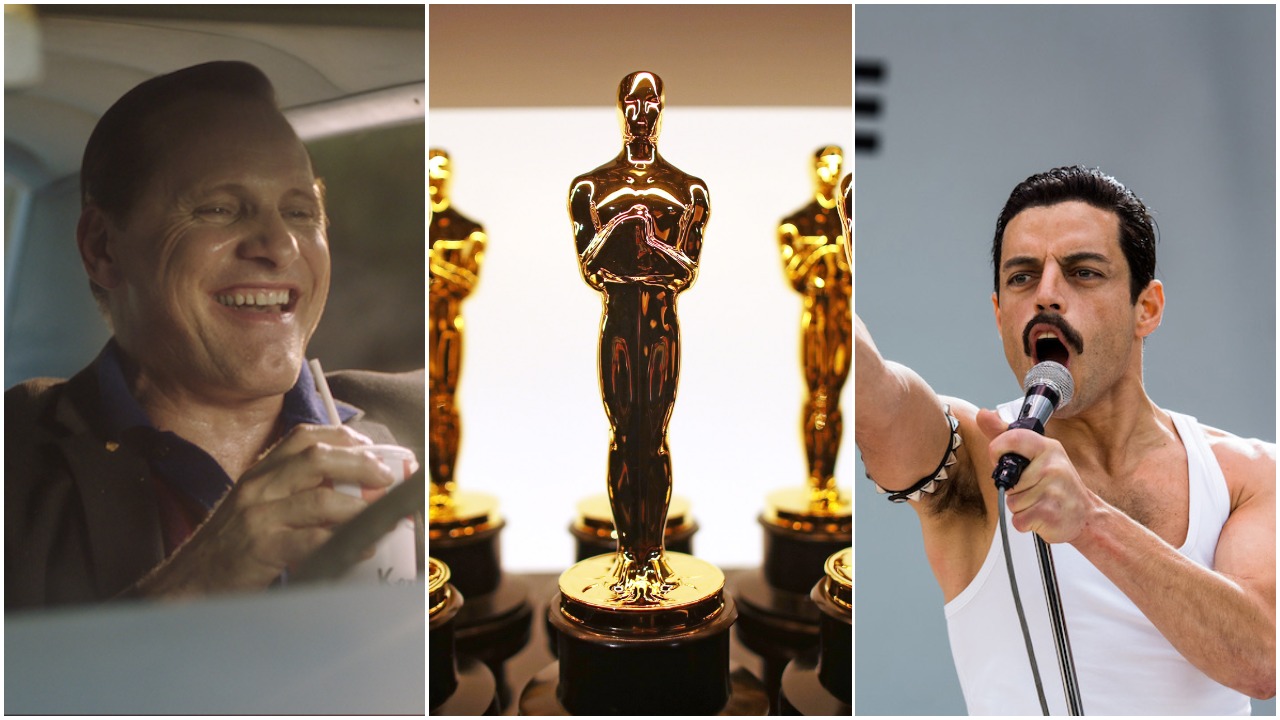This Sunday is already guaranteed to be a historic night for the Oscars. But aside from its highly unpredictable results, tuning into the Academy Awards this year feels to be based more in morbid curiosity than the usual sense of celebration: these past few months have been extremely awkward and public for the Academy of Motion Picture Arts and Sciences, and it’s clear we’re seeing the Oscars in the middle of a major identity crisis. At the age of 91, Oscar is torn between being a popular television event and being the one time a year when a worldwide television audience can appreciate the art form of movie-making beyond looking at mega stars. We’ll see on Sunday where this season’s wild course of events has taken us, but as of now, the Oscars are like an enterprise without assured direction, and an industry bonanza that threatens to call out its blatant lack of progress with its top winners, instead of its desire for it.
Let’s take a step back to August 2018. It was a slightly more innocent time. No one had seen Bradley Cooper’s “A Star is Born” yet, but it smelled like the multi-Oscar winner to beat. It also felt like Lynne Ramsay or Debra Granik or Chloe Zhao might even pop up in the Best Director category, and that it wouldn’t be an all-male roster this year. You know, those types of dreams.
But nonetheless, the Academy had a strange development for us on August 8: the introduction of the Best Popular Film category, the qualifications for such an absurd award to be revealed later. In natural fashion, we memed about it quickly, but ignored the stuff under the headline: Inside the “Best Popular Film” announcement was a note about how not all the awards were going to be broadcast, though it was not listed what they would be. From August, the Oscars introduced their new attitude: it wasn’t concerned with the movies so much as popularity. It wouldn’t be the last time they lost a sense of their true self to the cause of being liked and powerful.

The Oscars have bungled their attempts at such popularity, even when it brought on one of Hollywood’s biggest stars to host. Kevin Hart was originally brought on in December to take the role, something that he had previously talked about as a career goal. But he refused the Academy’s demand to apologize for homophobic jokes (on Twitter and on stage), citing that he had already touched upon that material in previous times. Hart did eventually apologize, but it came in the same tweet as an announcement that he was stepping down from the hosting position, “to not distract from the amazing talented people,” he wrote. In an interview with Josh Rottenberg at the Los Angeles Times, the producers shared that they had considered going host-less back in October—even if that is the case, the void of a host has now become a type of mascot for a show that is relying on a lot of people behind the scenes to help give it an on-stage personality.
The Oscars have long been concerned with its runtime. One solution was floated around from industry insiders, with the consideration that only two songs from its Best Original Song category would be performed at the show. Variety had heard from multiple sources that Kendrick Lamar & SZA’s “All the Stars” from “Black Panther” and Bradley Cooper & Lady Gaga’s “Shallow” from “A Star is Born” were the select two, though the Academy never confirmed which tunes it would be—but the let’s assume that one of them wasn’t “When a Cowboy Trades His Spurs for Wings” from “The Ballad of Buster Scruggs.” It was a reflection of the Oscars’ disinterest in showing off the diversity of its roster, and weak interest in accommodating popular taste.
Within days it was publicly confirmed that all songs will be performed, but two more developments have already occurred: “All the Stars” will now no longer be presented, as Kendrick Lamar has said that he doesn’t have the time to prepare a proper performance for the song. And in what will certainly be a boost in the right direction, and put “Bohemian Rhapsody” even more center stage, Queen will be opening the show.

Not even winners from last year could escape the Academy’s isolating and self-inhibiting new attitude, as Oscar pretended to not know the likes of Allison Janney, Sam Rockwell, Gary Oldman and Frances McDormand, recipients of acting awards last year. In an Instagram post that was deleted shortly after being posted, Janney expressed her initial heartbreak at not being asked to present this year, a decision from the Academy that would go against the usual tradition of having past winners on stage to announce the latest winners. The Oscars cemented that she was invited with a tweet that soon followed, but it was another moment in which the awards show looked like it had lost its way.
But Oscar saved perhaps its most dramatic touch for last. On February 13, it was announced that the four major awards would not be shown in the live broadcast. with two to three-million-dollar commercials to air in their place: Best Cinematography, Best Editing, Best Live-Action Short, and Best Makeup. I use the word “major,” not just because there are no categories more worthy of screen time than others, but because they’re essential to the very existence of movies. An impressive amount of Academy members, not just filmmakers, responded immediately, co-signing a letter that quoted a Seth Rogen tweet. Again, the Academy took back its decision. But even just the glimpse of an Oscars that openly did not value cinematography or make-up more than it did time for commercials, was incredibly disturbing and disheartening.
As for the actual top contender movies this year, well. We can debate the quality of “Green Book” and “Bohemian Rhapsody,” but it’s clear that they are problematic. “Green Book,” an offensive Peter Farrelly film and not in the intended way, had its story of brilliant pianist Dr. Shirley (Mahershala Ali) and his chauffeur dismissed by family member Maurice Shirley to Shadow & Act as “a symphony of lies,” down to the detail where Dr. Shirley is removed from his family in the story. In the larger picture, it’s queasy that this tale about an exceptional and talented black man is told from the perspective of a mediocre white man, that of Viggo Mortensen’s Tony. Add in co-writer Nick Vallelonga’s history of an anti-Muslim tweet (which he has since apologized for), and it’s nauseating to think about how “Green Book” epitomizes the problems about who is the storyteller in certain cases, and how that perspective then directly impacts how a narrative is framed.
Then there’s “Bohemian Rhapsody,” which is my current pick for “This Will Win Best Picture, But Absolutely Shouldn’t.” It’s only been a year since #MeToo and #TimesUp, and yet the film’s campaigning has been able to dodge that it’s been directed by Bryan Singer, the subject of numerous sexual assault allegations. Best Actor contender Rami Malek has been able to navigate a season that has welcomed his imitation of Freddie Mercury, and the editing has been hailed for simply getting it to the finish line. That’s just the politics though, as the movie itself, aside from its weak portrayal of Freddie Mercury’s sexual history and its Three Stooges-esque, PG-13 depiction of a prominent rock band, is blatantly dishonest. That hasn’t stopped the movie from becoming a frontrunner, but it’s again nauseating to think that a movie would value a shiny image and its song catalogue over looking at its subject’s history head on, or at least not working with a filmmaker, accused on multiple occasions before production even began, of being a pedophile.

This Oscar season has been so backwards that the “smear campaigns” brought against these two films in particular were more about showing the true heart behind these productions than taking unfair swipes at the respective projects. Politically timed as they may be, the various pieces and revelations that challenged each individual movies’ PR campaign only revealed the superficiality in which they told their very complex, human stories, all for the sake of achieving a rotten crowd-pleaser status that in turn made them so awards-friendly. If “Bohemian Rhapsody” were to win Best Picture especially, it would only affirm just how selective our collective memory is, or that the act of canceling has more asterisks than some may think in a post-Harvey Weinstein era.
As much as I’m curious about who will win and what the ceremony will even look like on February 24, I’m excited most about what’s going to happen after. With this Oscar season officially behind us come Monday morning, the powers that be will have a new shot at stabilizing what the Oscars should celebrate, and what values are most important to the ceremony. The extremely public nature of this season’s messiness has me hoping that they’ll be considering the past choices of what not to do, of what parts of tradition to not touch. I have hope that they’ll see why movie fans have become so outraged. We’re protecting a special part of movie love—the ability to support projects we think are worthy of such distinction, and the thrill of watching talented individuals, not just movie stars, ascend to golden prominence. Along with the movies themselves, it’s a huge part of what keeps us coming back to the Oscars each year.
To read Brian Tallerico’s predictions for this Sunday’s Academy Awards, click here












